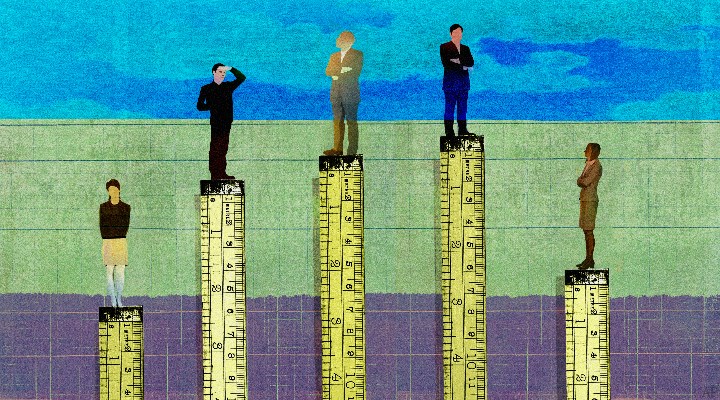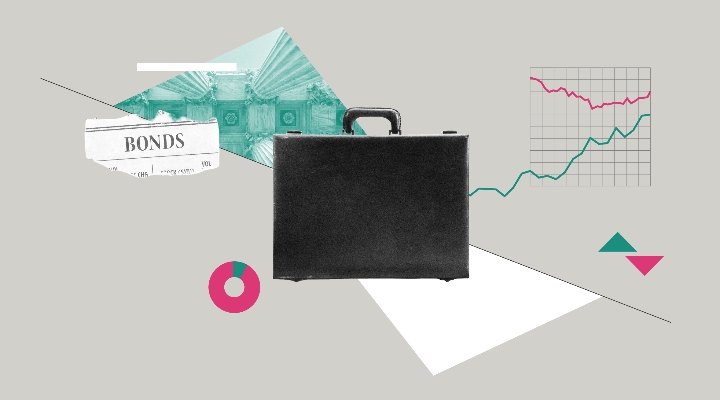
Despite efforts to make investment management more inclusive, the industry is still lagging behind in terms of female representation. At the same time, studies show that greater gender diversity leads to better returns. Addressing the gender gap requires us to rethink societal biases on all levels: from hiring to promotion and parental leave.
To celebrate International Women’s Day on March 8, we have put together a special issue of our regular series 13 Questions. Our interviewee is Caroline Hedges, head of credit at Aviva Investors.
We ask her how the industry has changed throughout her career and what needs to be done for more women to join and succeed in this industry.
How has the workplace changed since you joined it?
I don’t remember there being programmes or schemes to develop women when I started my career. Now there are plenty. The opportunities now available to women to help them progress their careers in finance are huge and this shows how much companies are committed to creating gender equality in the workplace. In another 15 years, I would like to see similar schemes to reduce other inequalities – social mobility is a keen theme at Aviva Investors, for example. Building talent programmes that aim to break down the stereotype of the fund manager as a very traditional, privately educated, white, middle-aged male will make help make great progress towards achieving a truly diverse industry that resonates with our clients and the wider population.
The asset management industry is saying the right things, but the numbers say otherwise. Morningstar research shows that there are still more funds run by men called Dave than there are female managers in total. What’s your reaction to our story?
In my 15 years in fund management, I have sadly seen little improvement in the proportion of female fund managers. I have heard the Dave anecdote several times and it still alarms me.
I think we need to do better to tackle gender stereotypes at an earlier age – encourage girls to play with “boys’ toys”, like construction, Lego, building blocks and problem-solving toys, rather than assuming that they prefer “girls’ toys”, like creative, nurturing, domestic role-playing toys. We don’t realise how influential these early gender-biased games and toys can be on the development, skills and interests that manifest in later life. This would help to bring a higher proportion of female students into maths and science subjects, which are typically associated with careers in finance yet still dominated by male students.
And why do you think fund management lags behind other industries for diversity?
I don’t think that fund management is any worse than other sectors in finance. The problem is bigger than just fund management and is prevalent across financial services and indeed many other industries.
What advice would you give your younger self?
Every challenge you are given, every mountain you have to climb, every fire you have to fight is developing your resilience to enable you to achieve your greatest potential. You will encounter many moments where you want to give up and many people that break your confidence but having the ability to overcome these will bring the greatest success.
Have you ever personally encountered everyday sexism in the workplace?
Absolutely, especially in my earlier years. I experienced comments on the way I presented myself and aspects of my attire, while sexist jokes and innuendo were quite common in the workplace. It didn’t feel abnormal at the time, but I’m pleased to say that attitudes and standards have moved on and the workplace is now a much more comfortable and respectful place for women. The “old schoolboy” attitudes have receded, either because the people that had them have left the industry or because society no longer tolerates them and sets clear expectations of what is and isn’t appropriate.
The theme for this year’s International Women’s Day is #breakthebias: what kind of biases do you think are particularly damaging to women in the workplace? And what can be done to remove bias from the hiring process in fund management?
I remember when I was pregnant with my first child – I was asked time and time again if I was returning to work afterwards. I said of course I was and that I would be back after six months. My response was often greeted with disbelief and the old refrain: “They all say that but they never do”.
The rebuke confused me, as I had every intention of returning to work. I hadn’t studied hard at school, at University, progressed through the CFA levels, driven to pursue a career as a fund manager to give it all up just because that’s what people thought women do.
Formalised equal parental leave policies are important, but we also need to ensure that we make it easy for women to be able to return to work by continuing the flexible working model post pandemic. This enables mothers and fathers to equally share the burden of nursery and school runs and means that the careers of working mothers are not disproportionately affected by childcare responsibilities.
What can be done to enable younger generations of women to work their way into financial services?
We need to provide inspiration and accessibility. We need to inspire women to have a career and we need to make finance a career choice that is accessible to them.
Do you or did you have a female role model or mentor at work?
I have found that females tend to have or want another female as a mentor. It is well documented that men and women behave very differently in the same situation and we know that this can impact a woman’s career path. I would like to see more men mentor women to give women an insight into how men might interpret and respond to certain workplace situations.
Are there particular individuals that have been an inspiration to your career?
Yes, having a supportive boss can make or break your career. Don’t settle for one that doesn’t believe in you.
What’s the best piece of advice you’ve ever been given?
To just be nice and genuine to everybody. That sounds like some very simple advice, but all too often you are led to believe that to advance your career you need to play the political game. This is disingenuous and it has always made me feel very uncomfortable. Being nice is a secret ingredient that is more powerful than playing up to the most important people in the room just to be noticed or to be heard saying the right thing. I believe that people can see through fakery and being kind to everybody around you, regardless of their status or position is far more important.
How do you define diversity in the workplace? Is it mainly about numbers/targets or something broader?
I define diversity as diversity of thought and ideas and strengths and weaknesses. This is the formula for creating powerful teams, where individuals’ skills and experience complement each other. Achieving diversity isn’t as simple as setting targets on gender, ethnicity, background, age, education or religion. It is about increasing the demographics and characteristics of your workforce because that creates a diverse set of views and opinion, as opposed to thoughts and practices that are all the same because the team is the same. Arguably this is difficult to achieve without setting quantitative measurable factors.
What can male fund managers do to advocate for their female colleagues?
We are starting to see men join gender inclusion events and programmes, but it would be great to see even more representation from our male colleagues. Men can mentor aspiring females and help those who often lack the inclination and confidence to promote themselves internally in the same way that men do.
Has the pandemic helped or hindered the progress of women in your workplace, in your opinion?
It has absolutely helped the progress of women. The fathers that I speak to have had a sustained period of work/life balance that has increased their participation in their children’s daily lives, be that in home schooling, being present at breakfast or for family PE sessions with Joe Wicks! I now frequently see fathers collecting their children from school. Childcare has become a far more equal responsibility in the last two years, and it is something that I see my teams wanting to hold on to. We must continue to support them to do so.





























